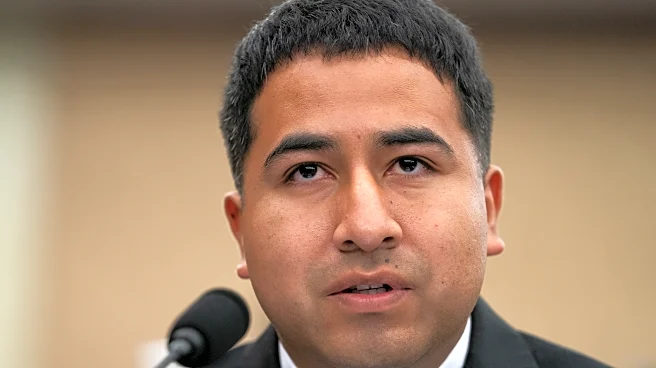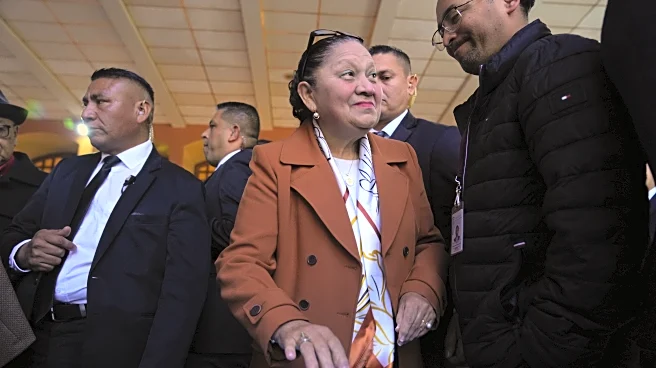What's Happening?
Jim Czirr, a former Michigan football center, reminisces about his notable performance in the 1976 Orange Bowl against Oklahoma's Selmon brothers, Lee Roy and Dewey. Despite Michigan's 14-6 loss, Czirr's efforts were recognized by NFL Hall of Fame coach Don Shula. Czirr, who was an All-Big Ten player by his senior year, faced the challenge of competing against the formidable Selmon brothers, both consensus All-Americans. His performance in the game drew attention from the Denver Broncos, who drafted him in the ninth round of the 1976 NFL Draft. Although Czirr did not continue his football career, he has since become the president of Sterling Pacific NW, LLC, and co-founded Galactin Therapeutics, Inc., focusing on drug development for chronic liver disease and cancer.
Why It's Important?
Czirr's story highlights the enduring impact of collegiate sports on personal and professional development. His experience in the Orange Bowl against top-tier opponents exemplifies the competitive spirit and resilience fostered in college athletics. The recognition from figures like Don Shula underscores the significance of individual performances in shaping career opportunities, even beyond sports. Czirr's transition from football to a successful career in financial advisory and drug development illustrates the diverse paths athletes can pursue post-sports, contributing to industries such as healthcare and finance.
What's Next?
Czirr continues to leverage his experiences from his football days to inspire his current work in drug development. His vision of filling Michigan Stadium with survivors of chronic diseases reflects his commitment to making a positive impact through his company, Galactin Therapeutics, Inc. As he advances in his career, Czirr's story may serve as a motivational example for current athletes considering their future beyond sports.
Beyond the Headlines
Czirr's journey from a college athlete to a business leader highlights the broader cultural and ethical dimensions of sports, including the values of teamwork, perseverance, and adaptability. His reflections on the influence of his coach, Bo Schembechler, and the philosophical lessons learned during his athletic career, emphasize the role of mentorship and leadership in shaping personal growth and ethical business practices.










![Cortisol vs. Melatonin: The Biological War Happening Inside Every Night-Shift Worker]](https://glance-mob.glance-cdn.com/public/cardpress/binge-magazine-card-generation/spaces/US/en/discover-daily/images/ppid_7byehtbd-image-177082393426031154.webp)